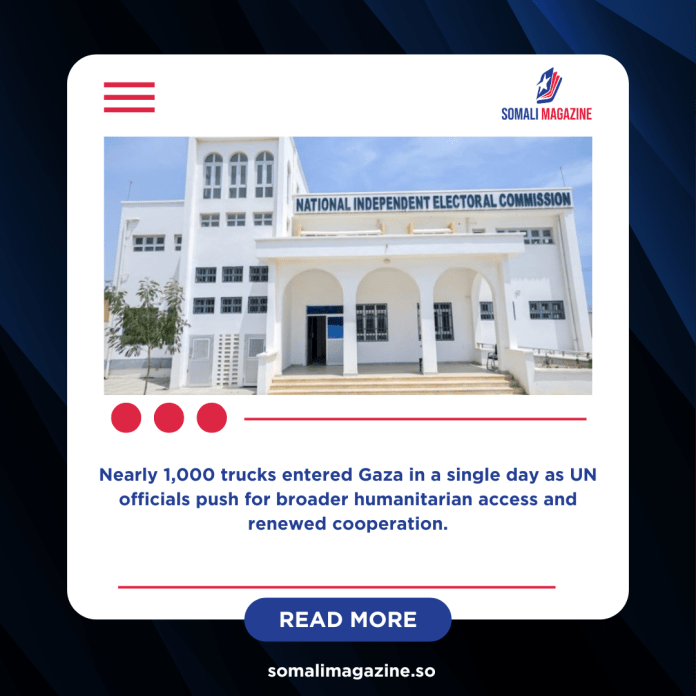Facebook Twitter (X) Instagram Somali Magazine - People's Magazine
Somalia’s National Independent Electoral Commission (NIEC) has announced that nearly one million people have registered to vote in the Benadir region, a major step forward as the country prepares for its upcoming elections. The commission reported that a total of 923,220 citizens signed up through 56 voter registration centers spread across Benadir’s 16 districts. Officials described the process as smooth and successful, highlighting the enthusiasm of citizens eager to take part in shaping Somalia’s political future.
NIEC Chairman Abdikarin Ahmed expressed optimism about the progress made, noting that the strong turnout reflects the growing trust of the Somali people in democratic processes. He emphasized that the registration exercise aimed to ensure that all eligible citizens had an equal opportunity to participate, especially those in previously underrepresented communities. “The registration process in Benadir has been smooth, and the turnout demonstrates the growing public interest in shaping the country’s future,” Ahmed said. He added that preparations for the elections, scheduled for next month, are progressing well.
The chairman also called on authorities to guarantee a fair political environment ahead of the polls. He urged the federal government, regional leaders, and security agencies to allow political organizations and candidates to conduct their campaigns freely and transparently. “Free and open campaigning is essential for credible elections,” Ahmed stated, encouraging all parties to uphold democratic values and respect the rights of voters.
Despite the positive momentum, the upcoming election faces challenges. Opposition parties, along with Puntland and Jubbaland—two of Somalia’s federal member states—have announced that they will boycott the process. They accuse the federal government of taking unilateral control of election preparations and failing to uphold the consensus-based approach that has traditionally guided Somalia’s political agreements. According to them, this approach undermines the inclusivity and fairness of the electoral process.
Political analysts warn that the boycott could limit national unity efforts and cast a shadow over the legitimacy of the election results. However, others believe that the progress made in voter registration—particularly in Benadir, which includes the capital, Mogadishu—is a hopeful sign of Somalia’s growing political awareness. They argue that expanding voter participation, even in the face of disputes, marks an important step toward building stronger democratic institutions in the country.
For ordinary citizens, the voter registration exercise has generated excitement and optimism. Many see it as a chance to have their voices heard and influence the country’s direction after years of instability and political uncertainty. The registration centers have seen long lines of young people, women, and first-time voters eager to obtain their voter cards. Election officials have praised the public for their patience and cooperation throughout the process, noting that their engagement sends a powerful message about Somalia’s democratic aspirations.
As the country moves closer to election day, attention will now turn to the readiness of electoral bodies, security arrangements, and the ability of political leaders to maintain peace and unity. The success of the polls will not only determine Somalia’s political direction but also test its commitment to democratic governance and national reconciliation. While challenges remain, the strong voter turnout in Benadir is a reminder that many Somalis are determined to participate in shaping their future, despite political divisions.

